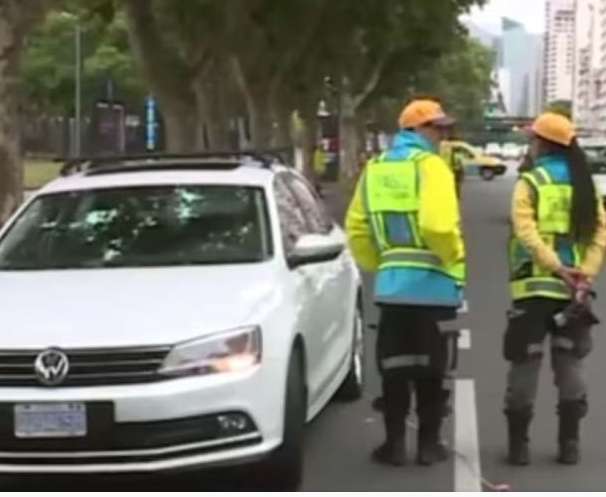Immunity and Intoxication: A Case Study of a Russian Diplomat in Argentina
The incident involving Russian diplomats and Argentine traffic police in Buenos Aires during the Christmas holiday period of 2024 sparked a diplomatic row, raising questions about diplomatic immunity and appropriate law enforcement procedures. The incident unfolded when Buenos Aires City Traffic Police stopped three Russian diplomats on suspicion of driving under the influence of alcohol and attempted to administer breathalyzer tests. The diplomats refused the tests, leading to a standoff, with at least one diplomat barricading himself inside his vehicle for over an hour. The entire incident was captured on camera and quickly disseminated via social media and live television broadcasts, drawing public attention and escalating the situation.
The refusal of the Russian diplomats to submit to the breathalyzer tests ignited a controversy centered on the interpretation and application of the 1961 Vienna Convention on Diplomatic Relations. This international treaty grants diplomats certain immunities and privileges within the host country to ensure the smooth conduct of diplomatic relations. The Russian Embassy in Buenos Aires swiftly lodged a formal complaint with the Argentine government, invoking the Vienna Convention and arguing that the traffic police’s actions infringed upon the diplomats’ immunity from local jurisdiction. The Embassy contended that the diplomats’ vehicles were inviolable and that the attempted breathalyzer tests and threatened confiscation of their vehicles constituted a breach of the convention’s provisions.
Ambassador Dmitry Feoktistov, in his formal letter to the Argentine Foreign Ministry, underscored the importance of respecting the Vienna Convention’s stipulations regarding diplomatic immunity. He emphasized that the convention guarantees diplomats freedom of movement, personal inviolability, and protection from arrest or detention. Furthermore, the letter asserted that diplomatic vehicles are also afforded protection under the convention and should not be subject to seizure or search by local authorities. The Ambassador expressed concern that the incident could potentially damage the bilateral relationship between Russia and Argentina, urging the Argentine government to take preventative measures to avoid similar occurrences in the future.
The incident garnered significant public attention, particularly due to its broadcast on live television and rapid spread on social media platforms. The footage of the diplomats refusing the tests and the subsequent standoff with traffic police became viral, sparking debate and commentary on diplomatic immunity and its boundaries. The presence of a Russian bystander, who acted as a translator during the incident, added another layer to the situation. The bystander’s criticism of the diplomats’ refusal to cooperate with the police, expressing embarrassment on behalf of his country, reflected the diverse public opinions generated by the incident.
The core issue at the heart of this diplomatic incident revolves around the balance between upholding the principles of diplomatic immunity enshrined in the Vienna Convention and the host country’s right to enforce its laws, including traffic regulations. While diplomatic immunity is intended to protect diplomats from undue interference in their official duties, it is not an absolute privilege. There are ongoing discussions and differing interpretations regarding the scope and limitations of diplomatic immunity, particularly in situations involving potential violations of local laws. This incident highlights the complexities of navigating the fine line between respecting diplomatic privileges and ensuring accountability when diplomats are suspected of breaching local regulations.
The incident raised several key questions: Does diplomatic immunity extend to refusing a breathalyzer test, a relatively non-invasive procedure designed to ensure public safety? Does the threat of impounding a diplomatic vehicle constitute a violation of the Vienna Convention? And what is the appropriate course of action for local authorities when faced with potential legal infractions by diplomats? These are questions that require careful consideration and may necessitate further clarification of the application of the Vienna Convention in such circumstances. The incident underscores the need for clear protocols and guidelines to address similar situations in the future, ensuring that both the principles of diplomatic immunity and the legitimate law enforcement concerns of the host country are respected.
Share this content:












Post Comment